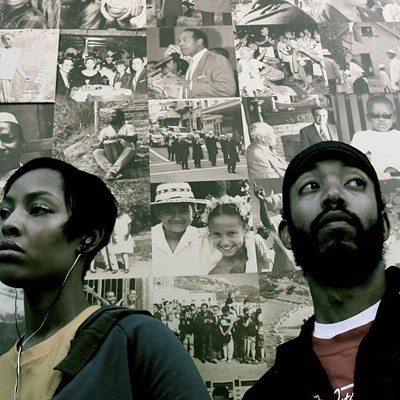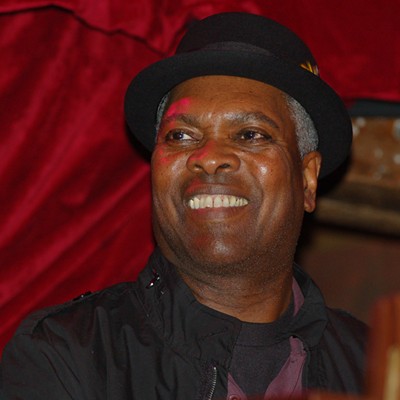People forget, however, that in 1983, after 12 years and eight releases with Warner Bros., Raitt was unceremoniously dumped from their roster, and for several years went without a label. In 1988, when she played at Centennial Hall, she could not afford a touring band, so she played as part of a duo. It was a heartfelt show of mostly acoustic, soulful blues, peppered with personal anecdotes about some of the great blues pioneers she had apprenticed with, including Mississippi Fred McDowell, Son House, Sippie Wallace, Muddy Waters and John Lee Hooker.
Even then, the music industry was changing, and many talented artists, like Raitt, were being purged by the major labels. But it wasn't for lack of effort. Although Raitt's first five albums were somewhat uneven, there were many flashes of brilliance. Freewheeling interpretations and stellar guitar work showcased Raitt's musical savvy as a bandleader, as well as her willingness to champion both the songwriter and the song.
In 1977, on Sweet Forgiveness, she scored a legitimate hit with Del Shannon's early 1960s anthem "Runaway," but could not parlay that into a successful follow-up. This was in spite of a kick-ass cover of Robert Palmer's "You're Gonna Get What's Coming," on her next album, The Glow, which also featured Warner's decision to include an airbrushed--and completely out-of-character--"glamour" photo on the cover.
In 1982, with perhaps her best band ever (The Bump Band), she made Green Light, an album that continues to hold up well. But again, it offered no big hit, and just after she had completed her next album, Tongue and Groove, Warner dropped her. Three years later, when WB wanted to put that album out, Raitt cried foul. Eventually, they let her re-cut half of it, and the result was Nine Lives, one of her poorest-selling albums--but whose title was ironically prophetic.
Three years later, in 1989, newly signed to Capitol, she put out Nick of Time. This was followed by her collaboration with Hooker (The Healer), then Luck of the Draw and Longing in Their Hearts. The rest, as they say, is multiplatinum history.
Fortunately, there is a lot more to Raitt than her best-selling albums and her signature slide-guitar work. Having grown up within a socially conscious family, Raitt has long been an advocate of progressive causes and activist politics. In 1979, after the Three Mile Island nuclear accident, she teamed with Graham Nash, James Taylor and Jackson Browne to form Musicians United for Safe Energy (MUSE). Their 1979 No Nukes concerts represented rock's highest profile benefits since George Harrison's 1971 Concert for Bangladesh. Since then, she has consistently lent her name and support to any number of environmental and political causes.
On her current tour, she is designating a certain number of tickets to be given to various local environmental organizations. Often the best seats in the house and including backstage "meet-and-greet" privileges, these tickets are sold as premiums and used as organizational fundraisers. For Tucson, she has chosen to work with the Center for Biological Diversity in support of its efforts to stop uranium exploration and mining near the Grand Canyon.
A local organization with a national agenda, the Center for Biological Diversity systematically and ambitiously uses biological data, legal expertise and the citizen-petition provision of the Endangered Species Act to obtain protections for animals, plants and habitat. According to its Web site, a whopping 93 percent of its lawsuits result in favorable outcomes.
According to the center's Kevin Dahl, Raitt has long had a relationship with the Guacamole Fund, a nonprofit group that works to connect artists with progressive causes and organizations. "We hope to raise $6,000 for our work in keeping mining away from the Grand Canyon," said Dahl. They can thank Bonnie for that.










